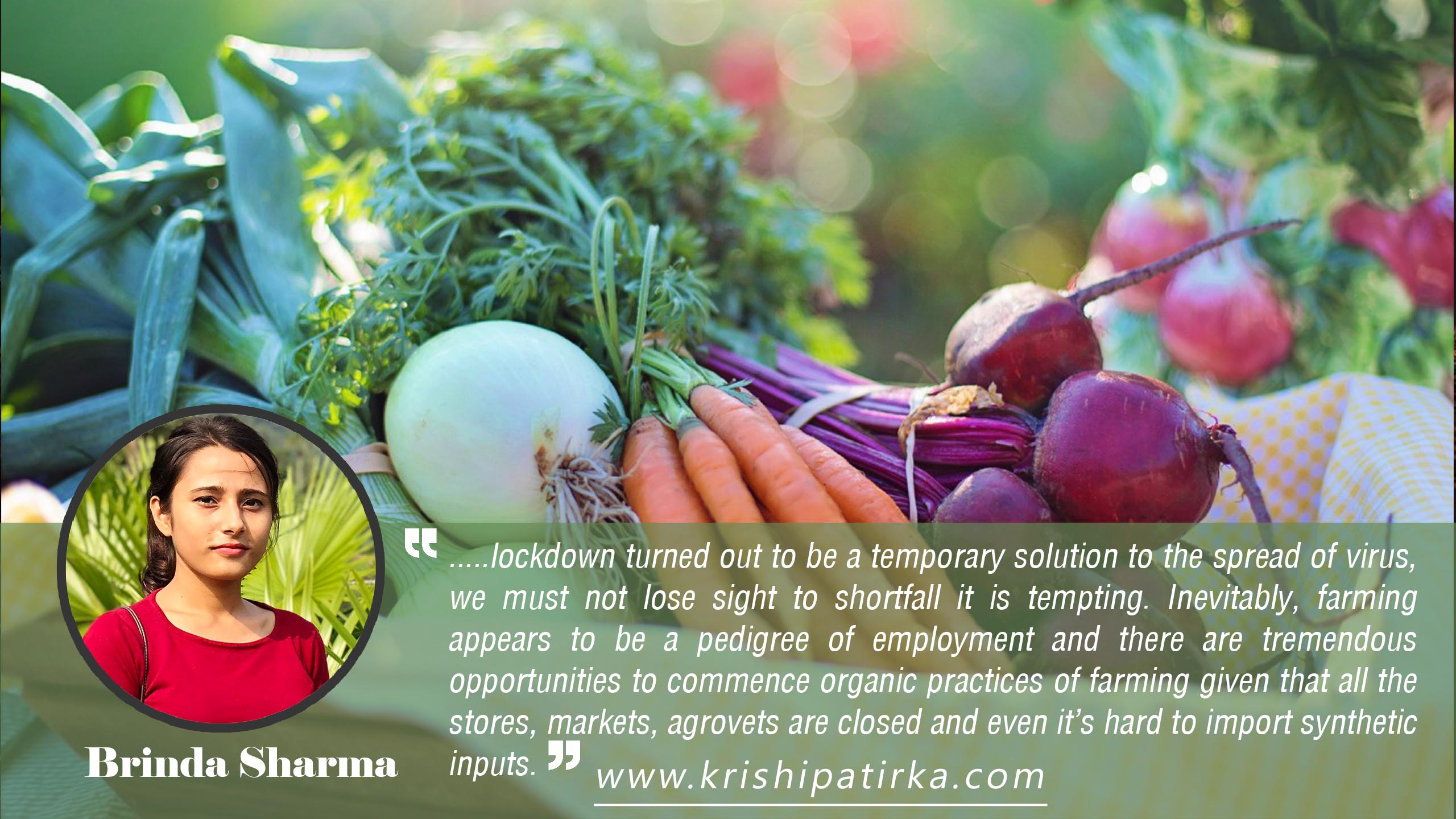
Organic farming is an agricultural system or a farming technique that uses ecologically best pest control and biological fertilizers derived largely from animal and plant wastes and nitrogen fixing cover crops excluding the use of synthetic inputs such as synthetic fertilizers, pesticides, veterinary drugs, GMO’s etc. Organic farming being one of the approach to Sustainable Agriculture is picking up steam in the present circumstances on account of unfortunate consequences on environment as steered by conventional farming practices. Organic agriculture was first appeared as one of the priority sectors in Nepalese agriculture since the 10th Five Years Plan but nowadays various institutions, individuals and farmers are emergently engaging in this field.
Owing to the existing scenario of COVID-19 pandemic, every country has indulged a massive economic as well as manpower deprivation in the last couple of months. Despite the fact that lockdown turned out to be a temporary solution to the spread of virus, we must not lose sight to shortfall it is tempting. Inevitably, farming appears to be a pedigree of employment and there are tremendous opportunities to commence organic practices of farming given that all the stores, markets, agrovets are closed and even it’s hard to import synthetic inputs. At this moment farmers are not getting treated rice seeds and are obliged to use their own previous harvest as seed for present year. Seeing through rose-coloured spectacles to these misfortunes can shift them to possibilities for organic agriculture. In Nepal, organic farming exists within the bounds of great possibility as many places are still organic in nature and yet to be not reached the modern technologies and chemical fertilizers. We can take an example of Jumla which is the only organic district. The fact of it being organic is due to the unavailability of chemical fertilizers and pesticides. This reveals how an inaccessibility of synthetic agrochemicals can instantly results organic farming.
The typical Nepalese farming system or traditional farming practiced especially by the farmers of hilly regions resembles to organic farming nevertheless, due to complicated certification process, the products are not getting recognition as organic product in the global market. Area coverage by organic farming is about 26%, but only 0.3% area is certified. There are some organic products that got popularity in domestic and international markets such as tea, coffee, cardamom, and medicinal herbs. We can still add more to this list. Feasting our eyes on all these possibilities and opportunities of organic farming in Nepal, government should prioritized organic farming in all upcoming agricultural plans and policies, simplify the certification process, must have clear vision on organic practices, must have effective extension system and must have good coordination among organizations, farming communities, government and agricultural offices.
Writer: Student of Bsc Ag 6th semester from the Institute of Agriculture and Animal Sciences, Pakihawa, Rupandehi ( Tribhuvan University).









